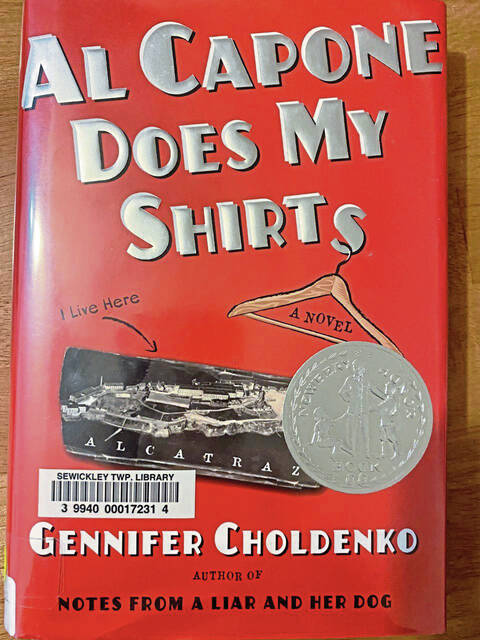Context is important.
Context is the difference between someone running down the street being a jogger, someone trying to catch a bus or a criminal fleeing a crime scene. The actions are the same, but the intent and the outcome aren’t. Context matters.
And so the context of the language that we use every day matters — especially in connection with schools.
The questioning of books by parents, community members or the school board members themselves has been on the rise. Pennsylvania has been a particular epicenter of the trend, coming in third behind Texas and Florida in the most books proposed for bans, according to literacy advocacy group PEN America.
In Southwest Pennsylvania, it has been a topic at school districts like Franklin Regional and Hempfield Area. A latest book being dragged into the limelight may seem a bit strange because of one very fraught word. The book is “Al Capone Does My Shirts” by Gennifer Choldenko. It’s a book that won the Newberry Honor in 2005.
Norwin School District board member Alex Detschelt would like it pulled from the district’s fifth grade curriculum for several reasons, including sexual references and mentions of nudity. He also cites derogatory terms used in reference to an autistic girl.
The question here is why Detschelt has an issue with a particular word — “retard” used as a noun and an insult — when his sharing of a meme on social media using that word and apparently mocking autistic or intellectually disabled individuals created controversy last year.
This is where context becomes important.
The book uses the word in the context of a period in history where it was commonplace and the word “autistic” all but unknown. The author’s sister has autism; the book was dedicated to her as its inspiration. This is also important context.
Now let’s look at Detschelt’s protest. The context here could be that he learned something from his previous incident, which upset some, including parents of disabled children, and prompted the district to issue a statement distancing itself from his words and stressing that he was speaking as an individual and not for the board or the district.
The book may stretch a boundary. It may be the kind of thing to introduce with parental consent or input. It may be absolutely appropriate for debate about how, when or even if it should be included in the curriculum.
But given Detschelt’s history with the word in question, it is incumbent upon him to provide context that it isn’t just a little bit hypocritical.








